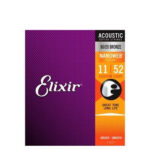Watching a demo of the Randy Jackson signature guitar, one can’t help but notice the demonstrator’s comment about seeking resonance “all the way up the neck.” While the guitarist’s skill is evident, the guitar itself seems to fall short, even experiencing brief audio cutouts. For a mere $99, acceptable intonation and clean fretwork across the neck might be a reasonable expectation. However, the concern arises for those who believe they are investing in a quality instrument, only to find themselves with what is essentially a plywood box. It prompts the question: why do established figures like Keith Urban, Esteban, or Randy Jackson lend their names to such products? The financial incentives alone seem insufficient to justify it.
The core issue with these celebrity-endorsed guitars – be it from Urban, Jackson, Esteban, or others – isn’t necessarily their inherent nature as budget instruments. They are what they are. The real problem lies in the aggressive marketing tactics employed, targeting uninformed consumers. While the principle of “caveat emptor” (buyer beware) and the adage “if a deal seems too good to be true, it probably is” hold weight, most people have experienced the vulnerability of making impulsive purchases under persuasive sales pitches.
Greater respect would be warranted for these celebrity marketers if they genuinely aimed to produce a commendable entry-level guitar. Even if constructed from laminate wood – which is perfectly acceptable – the focus should shift towards essential playability for beginners. Prioritizing a straight, comfortable neck, precise fretwork, and accurate intonation would be far more valuable than superficial aesthetics like flashy inlays or unnecessary pickups. These guitars could then be marketed as reliable beginner instruments, ideal for learning the fundamentals. But perhaps Yamaha has already thoroughly cornered this market by offering precisely this kind of dependable, no-frills beginner guitar.

